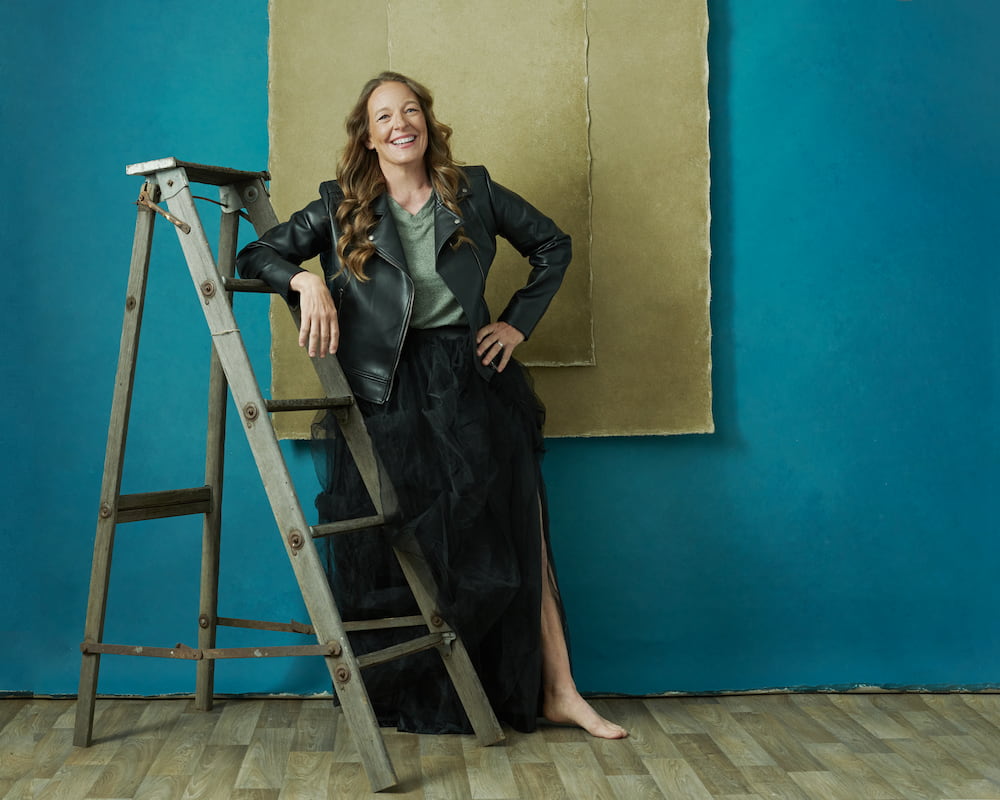Layne Lewis is an accomplished leader who has carved a remarkable path in her industry. Her career journey is a testament to her determination, resilience, and passion for making a difference. From her early days as an Aerospace Engineering graduate to her current role as the founder of Willowview Consulting (WVC), Layne has continuously pushed boundaries and shattered glass ceilings.
In 1987, Layne embarked on her professional journey by joining the esteemed team working on the definition and design of the International Space Station. Over the course of eight years, she traversed multiple NASA centers in Virginia, Houston, and Alabama, contributing her expertise to this groundbreaking project. However, her thirst for growth led her to pursue new challenges outside the realm of space exploration.
In 1995, Layne made a bold move, transitioning from NASA to Hewlett Packard (HP) as she embarked on a new adventure: designing commercial Laser Jet printers. This shift marked a pivotal moment in her career, propelling her into the world of management. Recognizing the importance of continuous learning, Layne pursued an MBA in 2002 to refine her skills and broaden her perspective.
Driven by her entrepreneurial spirit, Layne took a leap of faith and established her first company, Willowview Consulting, in 2003. Since then, she has never looked back. Through WVC, Layne has been able to create a lasting impact, empowering organizations with her visionary leadership and transformative insights.
“Leadership is about setting a vision and enabling a team to do incredible things.”
For Layne, leadership is not just about directing a team; it’s about setting a compelling vision and empowering others to achieve greatness. She believes that a successful leader possesses key traits such as confidence, decisiveness, and trust. Layne’s confidence stems from a deep understanding of her strengths and weaknesses. She isn’t afraid to seek help when needed, recognizing that collaboration and diverse perspectives are vital for success. Decisiveness is another trait she holds dear, enabling her to make tough choices even when faced with limited information. However, she understands the importance of adaptability and acknowledges that decisions should be revised as new data emerges. Trust is at the core of Layne’s leadership style. By placing trust in her instincts and her team, she fosters an environment where strategic leadership can thrive while leaving tactical execution to others.

Throughout her journey, Layne has faced unique challenges as a woman in a male-dominated field. As one of only two women graduating in aerospace engineering in a class of over 100, she learned to navigate a predominantly male environment. Despite her initial focus on doing the job she loved, she experienced discrimination and harassment based on her gender. Recognizing the barriers that existed, Layne made the courageous decision to uproot her family and transition to a new career at HP. This move not only freed her from a toxic environment but also exposed her to the commercial sector, offering a fresh perspective and an entirely different organizational structure.
Balancing the demands of work and personal life has been an ongoing journey for Layne. As a young mother, she invested countless hours early in the morning and late at night to ensure she could be present for her children during the day. Fortunately, she had the support of a company that recognized the importance of flexibility. When Layne founded WVC, she made it a priority to foster a culture that valued work-life balance. By setting hard limits and saying “no” when necessary, Layne has been able to prioritize her well-being while effectively managing her professional responsibilities. She advises others to determine their non-negotiables, find their balance, and allocate time and tasks accordingly.
Diversity and inclusion are central to Layne’s organizational philosophy. She firmly believes in the power of diverse perspectives, recognizing that each individual brings unique skills and traits to the table. To foster a culture of diversity, Layne actively seeks out individuals who possess different backgrounds, experiences, and ways of thinking. By embracing this diversity of thought, her team tackles complex problems with a multifaceted approach, leading to innovative solutions. Layne continually strives to create an inclusive environment where everyone feels valued, heard, and respected.
For aspiring women leaders in business, Layne offers invaluable advice. She encourages them to follow their hearts and pursue their passions, assuring them that success will follow. Finding a mentor who has navigated a similar career path is crucial, as they can provide guidance and support. Identifying the necessary skills for leadership and working towards developing them is essential. Layne emphasizes the significance of continuous learning and acquiring expertise in areas that may initially be unfamiliar. She credits her MBA and specialized training in project and program management as pivotal in expanding her skill set.
As a leader, Layne possesses an innate willingness to take risks. Her ability to tolerate risk has been instrumental in her decision-making process, allowing her to overcome fear and make bold choices even when faced with uncertainty. Layne believes in involving team members who will be affected by a decision, valuing their input and considering multiple perspectives. By shouldering the ultimate responsibility, she creates an environment where diverse voices contribute to well-informed solutions.
Building and maintaining strong relationships with clients and customers are paramount to Layne. She recognizes that effective communication is the cornerstone of these relationships. Layne understands that mismanaged expectations can lead to misunderstandings and setbacks. By prioritizing clear and open communication, she ensures alignment between all parties involved, fostering trust, and creating successful partnerships.
Layne measures the success of her organization through multiple lenses. Initially, saying “no” to clients that weren’t the right fit allowed her to focus on the ones that aligned with her vision. This shift enabled her to dive deeper into their needs, providing robust and long-lasting solutions. Layne also values the growth and development of her employees. By fostering an intellectually stimulating and flexible work environment, she ensures that team members leave WVC with enhanced skills and a positive experience. Layne’s commitment to her team is reflected in the feedback loops she maintains, seeking informal assessments to gauge employee satisfaction and project success. Additionally, she utilizes standard metrics for financial growth, spending, and other quantifiable aspects.
Looking ahead, Layne identifies the continued pursuit of work-life balance as a challenge for women leaders in business. Balancing personal and professional responsibilities while aspiring to leadership roles can be demanding. Layne acknowledges that finding the right equilibrium requires introspection, prioritization, and ongoing adaptation. However, she also sees opportunities arising from the increased availability of role models and support organizations. Women leaders like Layne are passionate about mentoring and sharing their experiences to guide the next generation of leaders, enabling them to navigate the path with more clarity and confidence.
Layne Lewis’s journey is a testament to the power of perseverance, adaptability, and embracing diversity. Her rise to leadership serves as an inspiration for women aspiring to make their mark in the business world. By embodying the qualities of a successful leader and continuously evolving with the changing landscape, Layne has not only overcome obstacles but has also become a trailblazer who paves the way for others to follow.
“Communication is everything! Any issue that I have seen can be summarized by ‘mismanaged expectations’ where one party had a set concept that was misaligned with the other party’s actions – most often due to not communicating their assumptions.”


